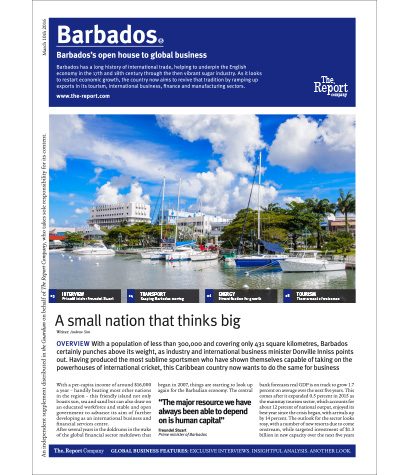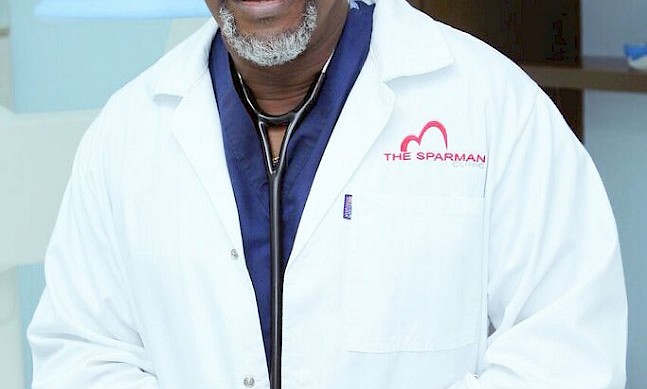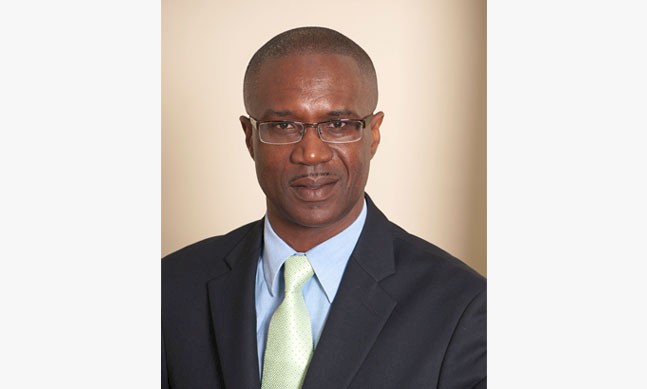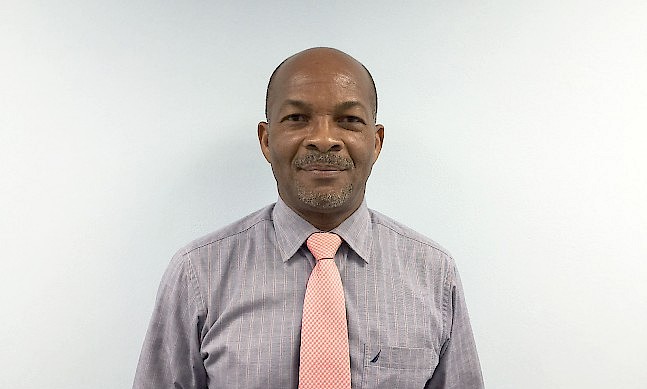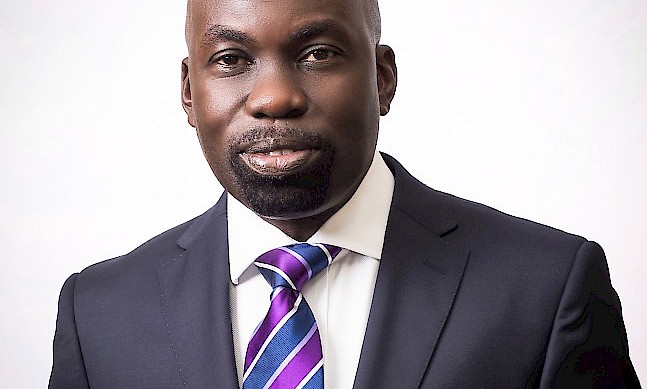Agriculture has long had great economic and social importance to Barbados, and although the glory days of the sugar industry are gone, the island nation is working hard to become a key food producer for the greater region. The Report Company met up with David Eastwick, the country’s agriculture minister, to find out more.
The Report Company: What are the challenges in the agricultural sector?
David Eastwick: The agricultural sector once contributed close to 30 or 40 percent of GDP. That has declined tremendously to somewhere in the region of 3.5 percent. The diversification of the economy towards financial services, tourism, and manufacturing that went on during the 1980s and 1990s came about simply because the international trade environment in regards to export policies changed, therefore forcing the country to look at different development models. The long and short of that is that the agricultural sector therefore suffered, because the various sectors that evolved did not do so with the appropriate linkages and a modern infrastructure to pull the agricultural sector along with them. As a result of that, we are still producing a lot of primary products as opposed to the value-added side of the production chain.
We now have a great opportunity to create a modern agricultural platform in Barbados by taking advantage of the significant growth in the tourism sector. Let’s say that we have around 800,000 long-stay visitors, those are 800,000 people that have to be fed. In addition to that, we have well over a million cruise tourists. Those are boats and cruise ships that homeport in Barbados, and have to be serviced. This creates a tremendous opportunity for the growth of the agricultural sector, and obviously direct linkages to the hotel and leisure sector. That is now not as vigorously developed as we ought to have it.
In addition to that, I think that the sector’s relationship to energy has to be further evolved. We are trying to develop that by the construction of a new multipurpose sugar factory which will be developing a 25 MW facility to power 65,000 homes from agricultural output. From that perspective we can look at establishing a linkage between agriculture on the biomass side and energy production in Barbados.
Another opportunity comes in relation to understanding what is happening within Caricom. There is a revised Treaty of Chaguaramas, which in article 89 allows for a restriction on importation outside of the customs union under certain circumstances. What has happened is over the last 10 years, the region has been importing $300 million in sugar, even though it is produced locally in the region. The region has also been importing $290 million of rice even though it is produced in Guyana. We have a similar problem with meat and other products that are at the primary level. That is occurring because we have not evolved the value chain effectively so that we can compete on the international market, and market our products and take advantage of our trade and investment treaties that we have signed. For example, we can now export fully to the European Union duty-free and quota free, but what are we going to export? We do not have the value-added products. But Caricom gives us the capacity to be able to have the economies of scale and to evolve the products at the highest level so as to take advantage of the Caribbean Basin initiative. This is where I see agriculture evolving for the future.
There are many regions in the world that are food-scarce. They can’t grow anything. Here in the region we can grow everything, so we want to establish a relationship so that we can act in partnership with these places. They bring the investment, we provide and produce for them, we use our raw products and take them up the value chain. I see agriculture essentially playing a more fundamental role in regards to economic development and job creation going forward. That type of agriculture will move the skill sets upwards, so that you will now not see agriculture simply at the level of a farmer on a tractor, but it will become a knowledge-based sector, because that is what it is. It is applied science.
“We now have a great opportunity to create a modern agricultural platform in Barbados by taking advantage of the significant growth in the tourism sector”Post This
TRC: What role can the ministry’s Barbados Agricultural Development and Marketing Corporation play in achieving this modern agricultural platform?
DE: I see it playing a significant role, and we have been trying over the next few months to rebrand the departments within the Barbados Agricultural Development and Marketing Corporation into a centre for agricultural product development and innovation. There is a food promotion unit, but we are not in the business of food promotion. We are in the business of taking a raw product, adding value to the product and innovating on that product to create added value. Once we do this, we then create the platform for industry to be able to use those new products. The BADMC will not be in the business of manufacturing itself, but it will be in the business of creating the infrastructure and the inputs needed for the manufacturing sector to jump off.
In the midst of that, I see that institution functioning as a state trading enterprise going forward. The importance of a state trading enterprise for small developing countries may be very different from those that exist in large developed countries. Almost everyone has a state trading enterprise in some form or fashion, but for us, because we are not competitive because of lack of economies of scale in so many ways, what ends up happening is that we are forced to compete really where we cannot compete. I have visited farms in Ohio that are bigger than Barbados. And they can produce poultry at $0.15. We produce it at a few dollars. Now, if we are to accept the international rhetoric of trade creation, you purchase only from where you have the cheapest product, but then it means that we can’t have an industry. Therefore, the state trading enterprise function of the BADMC is to act as a countervailing force. It will manage how much is imported in a certain timeframe so as to give the domestic sector the opportunity to build capacity. In periods when our domestic production capacity is low, we will then import. International rhetoric would call that trade diversion, but we do not see it that way. We see it as protecting a sector that employs people, and it is better to have a man or woman employed in Barbados to feed their children, than to have them being a menace on the street.
We then need to twin that with the use of national procurement policy. There is no state that does not now use national procurement policy for its domestic agricultural sector. We have been very slow in doing this. Another function of the BADMC would be its general support for the sector by using the state trading enterprise in the reverse way, not as a countervailing force, but to bring into the country the inputs for agriculture at the lowest possible price.
“I see agriculture essentially playing a more fundamental role in regards to economic development and job creation”Post This
TRC: What would you like investors to understand about Barbados?
DE: I would say to investors that they should consider Barbados in their future plans. In addition to the elements of return on investment that most persons look for, Barbados is also a wonderful place in terms of quality of life. We are a country where there is the rule of law, we are a country that has proper institutional structures which guarantee accountability and proper transparency and so on, and we have a well-established educational and healthcare system. We have the majority of the attributes that allow foreign investors to feel comfortable and to be able to access and monitor what is happening with regards to investment.
